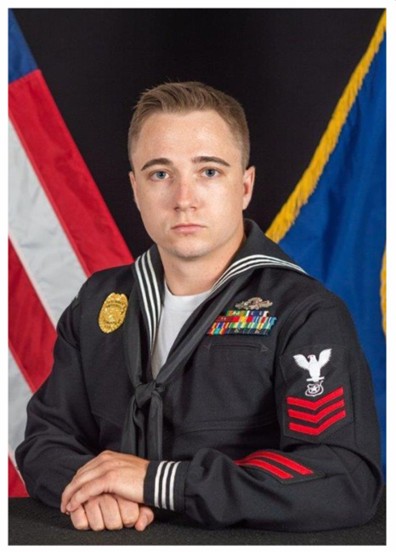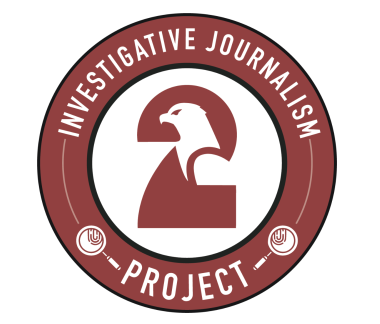
By Lee Williams
SAF Investigative Journalism Project
Former U.S. Navy sailor Patrick “Tate” Adamiak is about to finish his third year in federal prison. He has 17 more years to go. The ATF and a federal prosecutor, who died several weeks ago, saw to that.
Adamiak’s horrific saga is finally becoming more well known, which is good. He needs a presidential pardon. In fact, the pardon list should start with him. The 31-year-old even plans to reenlist in the Navy if he gets out.
To be clear, Adamiak bought and sold gun parts through a website he created. Nothing he owned or sold was illegal, which the ATF discovered only after they searched his home. To save their careers, the ATF turned to their ringer, Firearms Enforcement Officer Jeffrey Bodell.
Through his testimony, which was nothing but lies and untruths, Bodell actually turned Adamiak’s toys into firearms, legal RPGs into destructive devices and 100% legal semi-autos into machineguns.
Adamiak was willing to answer questions Monday afternoon about his life and his ongoing legal drama. The interview was conducted by phone.
Monday was also the three-year anniversary of the SWAT team raid on his home.
How are you doing?
“I am doing as good as I can be for being in prison, but I make the most of it. I’m using my time productively, working on classes, staying physically fit and working toward proving my innocence. I have been taking an electrical certification program and doing a paralegal certification course with a college out of Pennsylvania. I’ve already completed several other courses on the building and construction trade.”
How do you spend your days?
“Normally, I wake up early around 6 a.m. Then, it depends on if I’m working or if I have classes. I’ll get myself together, make breakfast, usually oatmeal and coffee. I live with 12 other people in the cell, in bunk beds. I get along with everybody. They’re annoying, disgusting and gross, but we get along. It’s incredibly crowded. We’re packed in here like sardines.”
You broke no law but were found guilty and sentenced to 20 years. How do you deal with the unfairness of your conviction?
“It’s troubling. I believe when they think of the justice system, they think they built it so stuff like this can’t happen. I know I’m innocent and eventually I will be exonerated and released. I was doing well in my life. This was a life reset. It has taught me new values and enhanced other values. Before, I was so go, go, go. I focused solely on the military. I didn’t take as much time as I should have for friends and family. This put new perspective in my life. Friends and family became more valuable. I will not take them for granted as much as I did in the past. After all this nonsense and the hell I’ve been through, I know I will get more out of life in the future.”
How do you handle it mentally?
“I’m comfortable being uncomfortable, which I learned in the military. I just keep in mind this is a phase, and this is something I have to get through. I know I won’t be spending all 20 years in here. I don’t try to dwell on what happened. I try and be as productive as possible. I believe most successful people in the world do go through hardships, so it’s making me more resilient and tougher.”
What is the status of your appeal?
“Just recently, my appeal was in abeyance pending the Vanderstock decision. I am aware the prosecutor has filed a motion to keep me in prison. Currently, my attorney is working on a response to that. My case should start proceeding. He will write his motion regarding the Vanderstock case. Then, there will or won’t be oral arguments.”
How much are you relying on a presidential pardon?
“It’s probably the biggest deal in my life right now. I’m approaching three years of being locked up. My life has been destroyed for that long. It’s slow draining – an arduous process. The court system moves at a snail’s pace, and a presidential pardon would literally restore my life to where it had been within one day.”
What do you think of your supporters who read stories about you and become angry?
“It means a lot to me that they’re essentially supporting me – that so many people have been made aware by the people who are vocal about it. There were a few people who took issue at the beginning, three years ago. I’m grateful that people are looking at it and being vocal about it now. It’s my freedom and my life on the line. I am thankful for every single person who takes time out of their day to look at my situation.”
What can people do to help your case?
“Be vocal. Let their elected representatives know about me and let them know this is something important to them. Write letters to congressmen, senators and to President Trump himself. Reporters have also been gaining awareness.”
What is your opinion of the ATF?
“I’m not a huge fan but this might come off as shocking. As shocking as it sounds, I do not think they need to go away entirely. They shouldn’t be harassing law abiding citizens who are allowed to own guns. They came to my house and rearranged things that are perfectly legal. The ATF should be focused on violent criminals, not those who appreciate firearm history.”
Do you have more hope now that President Trump was reelected?
“Absolutely! Yes! I was counting on it. I had no faith in the Biden administration. I wouldn’t be in prison if it wasn’t for the Biden administration. I have consulted with a lot of high-power attorneys after I was arrested. They all said they have never seen a prosecution like mine. From my conversations with them it became apparent there was pressure from the Biden administration. I encouraged all of my friends and family to vote for President Trump. I never even had a speeding ticket, and I was put into prison for toys and items that the ATF had approved years ago.”
Ultimately, who is responsible for what happened to you?
“I think it was a collective effort between politically motivated officials from the previous administration. They got extra points because I was active duty, which made for a shocking headline and looked really good on paper. Even the prosecutor tweeted about it, thanking the jury.”
Is a presidential pardon the best response?
“At this point, a presidential pardon would be the best thing that could happen, because I could go home tonight and be back in a Navy recruiter’s office tomorrow.”
The Second Amendment Foundation’s Investigative Journalism Project wouldn’t be possible without you. Click here to make a tax-deductible donation to support pro-gun stories like this.
